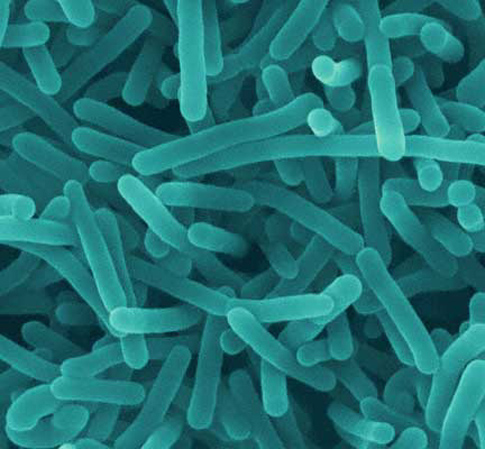Listeria monocytogenes, Which is commonly known as Listeria.
It is a type of bacteria which is common in the environment.
Animals and humans can carry the bacterium without even knowing it. Farm animals may appear healthy and still be carriers. They may contaminate foods such as meats and dairy products.
 Listeriosis is a Food Borne Illness.
Listeriosis is a Food Borne Illness.Foods contaminated with Listeria look, smell and taste normal. The bacteria can live and even multiply on food stored in the refrigerator. It can be killed by proper cooking procedures.
Symptoms of Listeria are:-
Symptoms start suddenly and include persistent fever, chills, muscle and joint pain, fatigue, nausea, vomiting, cramps, diarrhoea, headache, or constipation.
At this time the illness may be mistaken for food poisoning.
If the disease spreads to the nervous system, these further symptoms may be noted:-
Severe headache
Stiff neck
Confusion
Loss of balance and convulsions
Meningitis encephalitis (It’s an infection of the brain or its surrounding tissues) and /or septicemia (Blood Poisoning) may develop.
Either of these conditions can result in death.
Symptoms can appear from 2 to 90 days after consuming contaminated food. Average incubation period is three weeks.
Most at risk are pregnant women and their unborn children, those with weakened immune systems and the elderly.
Treatment for Listeria is:-
There is no vaccine for listeria. The disease is treated by antibiotics. Early diagnosis is critical, especially for those at high risk.
Diagnosis of Listeria is done through a blood test.
Sometimes spinal fluid, urine, stool samples or amniotic fluid may also be tested.
Preventions of Listeria are:-
(1) Refrigerate food at 4 degrees C or colder
(2) Thoroughly cook foods such as hot dogs and poultry products
(3) Avoid unpasteurized milk and dairy products
(4) Wash all raw fruit and vegetables well before eating
(5) Follow "use by" dates on packaged goods
(6) Follow all package directions for food preparation and storage
(7) After handling food in the kitchen, especially raw meat and fish, thoroughly clean and sanitize all surfaces with a solution of bleach and water ( 5 ml of bleach to 750 ml of water)
(8) Refrigerate or freeze leftovers within 2 hours
(9) Frequently wash and disinfect the refrigerator
(10) Defrost food in the refrigerator, in cold water, or in the microwave, but never at room temperature
(11) Wash hands frequently, especially before and after handling food
(12) Foods to Avoid (especially by high-risk individuals)
We can also avoid hot dogs, on-dried deli-meats, cheese made from unpasteurized milk, refrigerated pate and meat spreads, refrigerated smoked seafood and fish,raw or undercooked meat, poultry and cook.